It's not just about the weather: the impact of climate change on natural disasters
 February's Forum talk
February's Forum talk
THURSDAY, 18 FEBRUARY 2021 - 4.30-5.30 PM (CET)
Natural disasters have become a regular feature of our weather. Climate change has been a key factor in increasing the risk and extent of wildfires, severe rainstorms, floods and other "natural" disasters. If once we believed that a severe climate crisis awaits us sometime in the future, we can now observe it happening in front of our eyes. The recent glacier catastrosphe in India was a reminder that we have to act now in order to prevent more such severe natural disasters in the future. How to combat dangerous coastal erosion? How to reduce the negative impacts of wildfires on the environment and humanity? How to raise awareness on these issues among civil society? Those are some of the topics we will touch upon in the Forum Talk “The impact of climate change on natural disasters”. The long-term impacts of natural disasters include loss of natural resources, release of further greenhouse gasses, threatened livelihoods and communities forced to leave their homes . Climate migration is becoming a global challenge that will be addressed in February’s second forum talk.
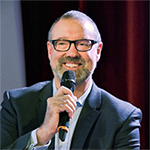
Alex TAYLOR
European journalist

 Moderator
Moderator
Alex Taylor is a European journalist. He has produced and presented TV and radio programmes for 30 years, mainly on French TV and radio (France Télévisions, France Inter), but also for international broadcasters (Euronews, TV5 Monde, ARTE, BBC). He was Programme Director for Radio France Internationale in charge of implementing the current 24 hours news format. Parallel to journalism, he has hosted some 1 500 international conferences on a wide variety of topics, especially environmental issues. He has also written a best seller on his passion, languages, of which he speaks (more or less) 7. He also once worked as a camel trainer in a circus.
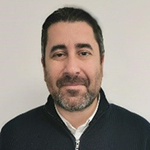
Demetris CHRISTOU
Director, BeSafeNet, European Centre for Disaster Awareness, Civil Engineer at Ministry of Interior, Cyprus

Demetris Christou is a graduate of Aristotle University Thessaloniki with degree in Civil Engineering. Furthermore, he has a Master’s Degree in Civil Engineering from the University of Cyprus. He has been working in the private sector since 2005 and from 2009 and towards he is serving in the Ministry of Interior of the Republic of Cyprus, in various positions. The latest being at the European Funds Unit. His duties include inspection and evaluation of Structural projects funded by the EU. He also has experience in the coordination of Civil Engineering Projects, Quantity Surveying and Civil Defence Projects. His computer and management skills support him in his role as Director of BeSafeNet - European Centre for Disaster Awareness since 2017.
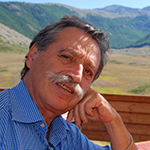
Ferrucio FERRIGNI
LoKSAND, Local knowledge and schools against natural disasters, Italy

Ferrucio Ferrigni is an expert on protection of historical built-up in seismic prone areas by recovering the Local Seismic Culture, an original concept and a new approach that he defined in 1987, now accepted worldwide. He is lecturer, organizer, coordinator of international congress, seminars and workshops in Algeria, Colombia, France, Greece, India, Italy, Macedonia, Portugal, Spain, Turkey and Venezuela.
He collaborate with governments and international agencies to organize researches and training activities on protection of cultural haritage and on disaster prevention by recovering the Local Risk Culture.
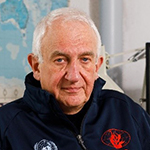
Johann GOLDAMMER
Director, Global Fire Monitoring Center, Germany

Johann Georg Goldammer is a professional forester and forest scientist, specialized in fire ecology and fire management at the Max Planck Institute for Chemistry and professor for fire ecology at Freiburg University, Germany. In 1998 he established the Global Fire Monitoring Center (GFMC) and is serving as its Director since then. The GFMC is a member of the Science and Technology Partnership of the United Nations International Strategy for Disaster Reduction (UNISDR), coordinator the UNISDR Wildland Fire Advisory Group (WFAG) and provider of a Voluntary Commitment for the implementation of the Sendai Framework for Disaster Risk Reduction 2015-2030. At regional European level, the GMFC is serving as a Specialized Euro-Mediterranean Centre under the European and Mediterranean Major Hazards Agreement and supports the Wildfire Disaster Risk Reduction agenda of the Organisation for Security and Cooperation in Europe (OSCE).
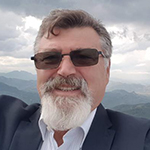
Anton MICALLEF
Euro-Mediterranean Centre on Insular Coastal Dynamics, Malta

Prof Anton Micallef is an Associate Professor at the University of Malta lecturing at the Institute of Earth Systems on the Mediterranean coastal and marine environment, coastal hazards, coastal risk management and ocean systems. His area of specialisation is coastal geomorphology and integrated coastal area management, particularly that related to beach management. Since 1989, he has served as the Director of the Euro-Mediterranean Centre on Insular Coastal Dynamics (ICoD), a Council of Europe specialised Centre pertaining to the EUR-OPA Major Hazards Agreement.
